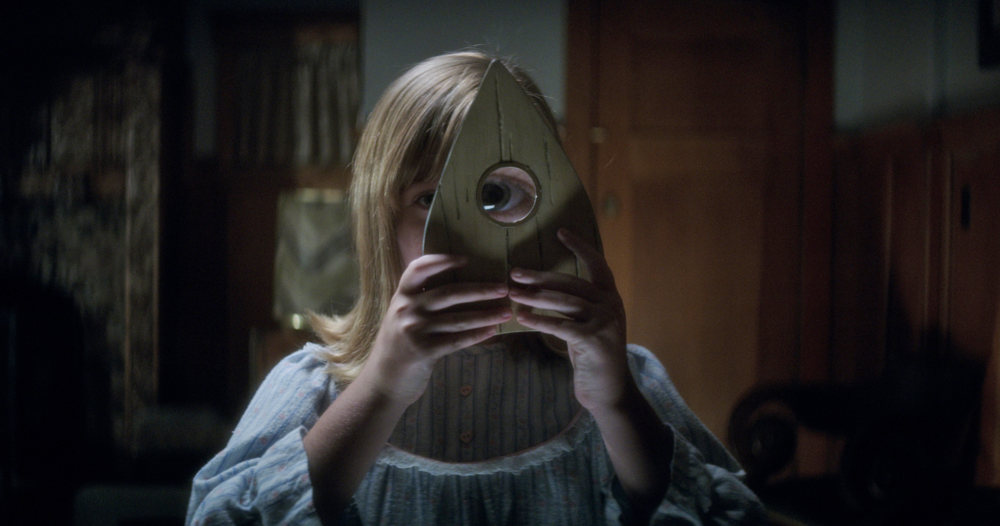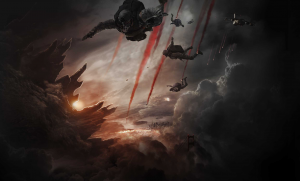Ouija: Origin of Evil almost immediately establishes itself as a force to be reckoned with in its thorough set-up. Mike Flanagan meticulously makes this period horror film feel as though it came out of the 1960s along with the Ouija game that had just been willed into its horrible existence, complete with a lush production and appropriate costuming. But Flanagan won’t settle for a simple period film; no, he adds reel change cues as though this was being projected on film and even edits the feature to seem as though the projectionist hit the switch too early or too late before getting it just right (and, even then, there’s some wear on the “start of the reel”).
It’s something like that that makes Flanagan such an exciting filmmaker and Ouija: Origin of Evil proves no exception. Though he has an admittedly small pool of films, Flanagan continues to explore similar themes to the rest of his work. If anything, Ouija can be treated as a wonderful companion piece to Oculus, both films that feature impeccable editing that find interest in familial bonds, the way they affect us, and forces beyond our understanding. Ouija trades the omnipresent mirror of Oculus for more than just a Ouija Board though, telling the tale of a widowed mother and her two daughters and the way their lives change after getting a board to boost the effectiveness of their séance gig.
While the set-up narrative by Flanagan and regular co-writer Jeff Howard (who shared writing duties on both Oculus and Before I Wake) isn’t impeccable — scam artists with a heart of gold aren’t exactly new to cinema and neither are people who ignore every single rule placed in front of them in a horror film — what Flanagan offers is filmmaking that doesn’t rely heavily on jump scares for fear. Every time Doug Jones appears as a menacing spirit or actress Lulu Wilson’s mouth flies open to horrifying effect though, you’re sure to feel that familiar and delightful pang of fear. The script focuses on the heavy stuff, particularly processing grief and the way we often don’t realize how necessary it is to simply let go, and ultimately results in a project that’s just as bleak as Oculus and allows its actors, particularly Elizabeth Reaser and Annalise Basso, to really shine in the way they give their horrified performances a level of gravitas not always offered to women suffering through evil spirits.
The feature undoubtedly goes off the deep end in its third act, with Flanagan and Howard really leaning into humor by inserting a ridiculous historical background for the spirits that roam the household of these characters alongside their dearly departed. Its silliness doesn’t diminish the bleakness of the narrative, just as Flanagan’s departure from his stylistic and narrative interests with the Netflix feature Hush don’t diminish the auteurship he’s building. With Ouija: Origin of Evil, he delivers a hell of an engaging prequel for a mess of a feature that didn’t deserve one in the first place.
—
Directed by Mike Flanagan; written by Mike Flanagan and Jeff Howard; starring Elizabeth Reaser, Annalise Basso, Lulu Wilson, and Doug Jones; 99 minutes.
Ouija: Origin of Evil releases in theaters everywhere on October 21st.




 Derek
Derek
 Isabelle
Isabelle